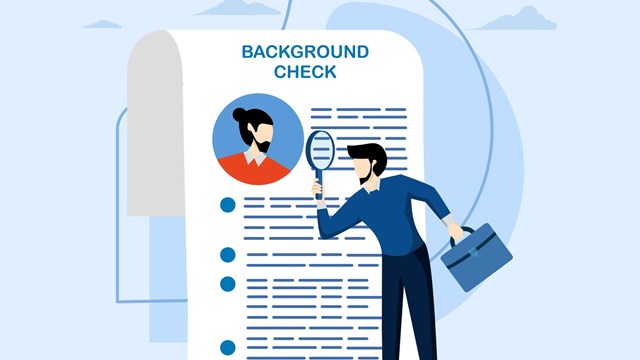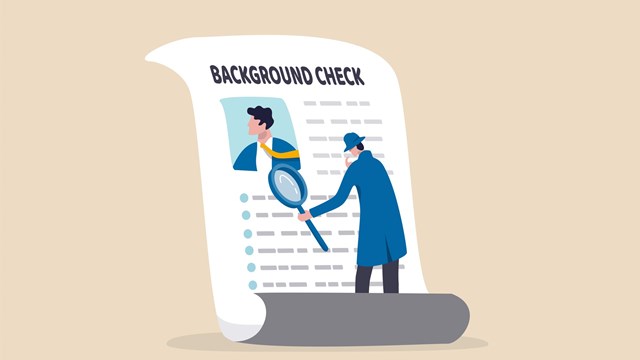Board approval has been part and parcel of buying into an NYC co-op since the housing model was introduced in the late 1800s. Boards can demand troves of personal information from buyers, and can approve or deny a purchase for just about any reason—or no reason at all—but they may not engage in illegal discriminatory practices. Recently proposed New York City Council legislation would require more transparency and accountability from boards (more on that later), but in the meantime, it’s crucial for boards to understand what information they’re entitled to, what’s none of their business, and what’s off-limits entirely. Let’s take a look.
Getting Approved
For co-op buyers, the first step in getting approval is completing and submitting the ‘board package’ for review. The package typically contains financial documents, personal information, and reference letters from friends and business associates—though some boards ask for far more. Anecdotes abound about ultra-wealthy co-ops wanting a list of applicants’ club and board memberships, their educational background, their lifestyle preferences—even what credit cards they have. (One story that circulated years ago claimed a buyer was rejected by a swanky Park Avenue board because he had a Sears card. The board apparently felt that patronizing such a downmarket establishment made the buyer a poor fit for their community.)
Typically, a buyer’s broker helps compile the board package and submits it for review. To give an idea how exhaustive some packages can be, Larry Lubin, a broker with Manhattan-based Klara Madlin Real Estate, describes one he dealt with that had 11 different requirements, including the formal application form, a financial information form, credit and background checks, two years of state, federal, and local tax returns, an employer letter confirming the applicant’s salary and terms of employment, pay stubs, and the applicant’s three most recent bank statements—as well as personal references, business references, and references from the applicant’s current landlord. “Exact requirements may differ slightly from building to building,” Lubin says, “but that list is typical of most co-op applications.”
Less typical are requirements like that of a co-op in Soho that, in an effort to cultivate just the right kind of creative, artsy vibe in the building, made it their policy to screen applicants by vetting the quality of their creative work as part of the interview process. (No word on whether they favored postmodernism over, say, still life.)
Financial Considerations
Unusual demands aside, most boards are primarily looking at the purchaser’s financial profile when assessing their application. Can this person afford to buy the apartment and cover the monthly carrying costs? Do they have the resources to pay a special assessment, should one be necessary?
“Every building has a finance requirement,” says Jennilee De Leon, an account executive with Sacks Real Estate Management Corp./Allied Partners in New York City. “Some buildings are all-cash, while others permit financing, which can range anywhere from 50 percent to 80 percent of the purchase price. In terms of liquidity, annual income is a deciding factor. Applicants have usually applied for a mortgage as well, so in virtually all cases, they would have already passed muster with a financial institution before they get to the board”—a clear indication that they’re qualified, at least as far as the money component is concerned. “Some high-end buildings may have more stringent requirements,” she adds. “In luxury buildings, net worth is a bigger factor.”
Lubin agrees. “If the buyer is financing the purchase, you want to see their mortgage pre-approval. That will pretty much satisfy a board, since a bank wouldn’t approve the buyer’s credit if they weren’t qualified. They should also fill out a financial statement form, which is available from the Real Estate Board of New York (REBNY). You also look at their debt-to-income ratio—that’s the main measure most co-op boards use to determine if a purchaser qualifies. Generally, you don’t want anyone with a debt-to-income ratio over 25 percent.”
A Word on Condominiums
Unlike co-ops, which are corporations, condominiums are real property. Thus, condo boards have less control over who can buy in. While condo boards outside of New York City typically require little or nothing from the buyer or seller to approve a sale of a unit, many condominium associations here do require buyers to complete board approval packages. According to De Leon, that may be due to the influence of the co-op market. “Condos in New York City often ask for basically the same information as a co-op,” she says.
But unlike a co-op, which can simply say ‘no thanks’ to an undesirable buyer and move on to the next one, a condo board really only has one option: the right of first refusal. In simple terms, if the board is unhappy with a prospective buyer for whatever reason and chooses not to approve the sale, the board can elect to purchase the unit itself—at the same price the prospective buyer is offering. Given the six- and seven-figure price tags of most units, this is exceedingly rare. Few associations have the available cash on hand to make such a move—and leveling a huge assessment on unit owners to prevent a purchase would be a very tough sell indeed.
Playing Fair
While they may consider certain non-financial criteria in assessing a potential buyer, the discretion granted to co-op boards does not equal a license to discriminate—but boards do have substantial leeway to deny a purchase application on non-financial grounds while staying on the right side of ethics and the law.
Key among those laws is the federal Fair Housing Act. According to Deborah Koplovitz, a partner with the Manhattan-based law firm Herrick Feinstein LLP, “The Act was passed in 1968 [and] was the most important piece of legislation from the civil rights era.” While the Act’s initial purpose was to promote integration and discourage racial discrimination, Koplovitz continues, its scope has expanded since then. “In 1988, it was extended to include people with disabilities, for instance. New York City has the strongest such laws in the nation, so if you’re in compliance with New York City’s laws, you’re in compliance with federal and state laws as well.”
Are there any groups who are not protected under those robust anti-discrimination measures? As it turns out, the answer is yes—at least as of this writing, and in certain very specific circumstances.
For example, “If an applicant is a felon…or is a celebrity,” says De Leon, “a board may reject them,” based on the Business Judgment Rule, a common-law doctrine by which courts typically defer to board decisions—as long as those decisions are within the law, made in good faith, and in the best interest of the shareholders as a whole.
“Most boards do a criminal background and sex offender registry check on all proposed purchasers and occupants,” says Aaron Shmulewitz, a partner at the Manhattan law firm of Belkin Burden & Goldman LLP. “While discrimination in employment based on a person’s criminal record is illegal, refusing an applicant for housing based on a criminal record is not prohibited by federal, state, or city law. Put another way: there are 13 grounds for unlawful housing discrimination; decisions based on a person’s criminal record are not among them.”
And what of rejecting a buyer who just happens to be an international pop star, oscar-winning actor, or head of state? Boards can absolutely pass on a buyer they believe will draw unwanted attention, paparazzi, or other nuisances to the building, say the pros. In fact, A-listers are routinely denied entry to some of the city’s most desirable addresses; in the mid-1980s, both Madonna and Calvin Klein had their applications rejected by the board of the San Remo on Central Park West; Barbra Streisand got denied by both 740 and 1107 Park Avenue around the same time. In 2012, the board of an ultra-exclusive Fifth Avenue co-op rejected then-prime minister of Qatar, Sheik Hamad bin Jassim bin Jaber Al-Thani. It certainly wasn’t a matter of money; according to reports at the time, the board balked at the sheer size of the Sheik’s entourage, the prospect of having heavily armed bodyguards roaming the building, and his diplomatic immunity, which would make collections and rule enforcement extremely difficult if problems ever arose.
Rejection for non-financial reasons can bring serious repercussions. The pros agree that a co-op board’s primary and overriding concern should be whether a buyer can afford to carry his or her share of the financial load—not who that person might be. Koplovitz notes that even asking an applicant’s age—common on many applications—is ill advised, since that question could be grounds for a discrimination claim. And even though the board doesn’t have to give a reason for turning down the application, if a rejected applicant sues, the board is open to legal discovery, which will expose any negative or discriminatory action on its part. So the best advice is simply to play fair.
A New Law on the Horizon?
In the years since the Fair Housing Act was ratified, additional laws mandating transparency and equity have helped to curb many of the discriminatory practices some co-ops used to maintain their exclusivity.
A new proposal co-sponsored by several New York City Council members and public advocate Jumaane Williams earlier this year aims to promote even more transparency in co-op share transfers. According to Hal Coopersmith, an attorney and principal of Manhattan-based firm Coopersmith & Coopersmith, the city law mirrors the requirements of a state law proposed (but never voted on) in 2022.
The new bill would require that co-ops with 10 or more apartments maintain a standardized application for purchases. Coopersmith notes that the City is not proposing a single citywide application form; individual buildings can draft their own form, but once adopted, it must be used for any and all purchases within that building.
Co-ops would also be required to confirm the receipt of requested and required application materials within 10 days of receiving them. The board then has 45 days to accept (either conditionally or unconditionally) or reject the application—though boards may request one additional 14-day extension.
However, the most controversial aspect of the bill is that it mandates that the co-op provide a statement of what exactly was found deficient in the purchase application if it is rejected. The corporation must also disclose the number of buyers it’s rejected over the past three years.
Given that it’s already illegal in NYC to deny someone housing based on prejudice, why do we need this new law? “Under current law,” says Coopersmith, “a co-op board can decline a purchaser for any reason, or no reason at all. They don’t have to provide an explanation. Without this [new transparency] requirement, it’s hard to prove why someone was declined.”
For example, he continues, musicians are not a protected class. A board may feel that a professional trumpet player will cause noise issues, and could legally reject his or her application for that reason. “Yet if the trumpet player also happens to be a person of color, how do we know that noise excuse isn’t merely cover for the co-op” and that the real reason for the rejection is something more sinister? “Under current laws, we don’t,” says Coopersmith. “This new law would provide more transparency.”
Perhaps unsurprisingly, co-op boards and the attorneys and organizations representing them are not overjoyed at the prospect of this new law—after all, boards are made up of volunteers who commit time and effort to help govern their buildings for no compensation, and they already navigate a lot of legal pitfalls and regulatory red tape. And, says Coopersmith, “This new law will lead to litigation. There’s also a question of what it means for board members. While some aspects of additional transparency might be welcome in the application process, more transparency can also lead to concerns and litigation for individual board members. While co-ops carry directors and officers (D&O) insurance to protect board members in such cases, too many claims may lead to an increase in those premiums.” It could also lead to less willingness among cooperators to step up to serve on their boards.
But, say the pros, one very good way of protecting your board and its members from claims of illegal discrimination is to not illegally discriminate in the first place. Knowing the law, plus taking the advice of your co-op’s legal counsel and using a healthy measure of common sense, will go a long way toward keeping your board on the straight and narrow when it comes to deciding whether a prospective buyer will become a neighbor.
Cooper Smith is a staff writer/reporter for CooperatorNews.










Leave a Comment